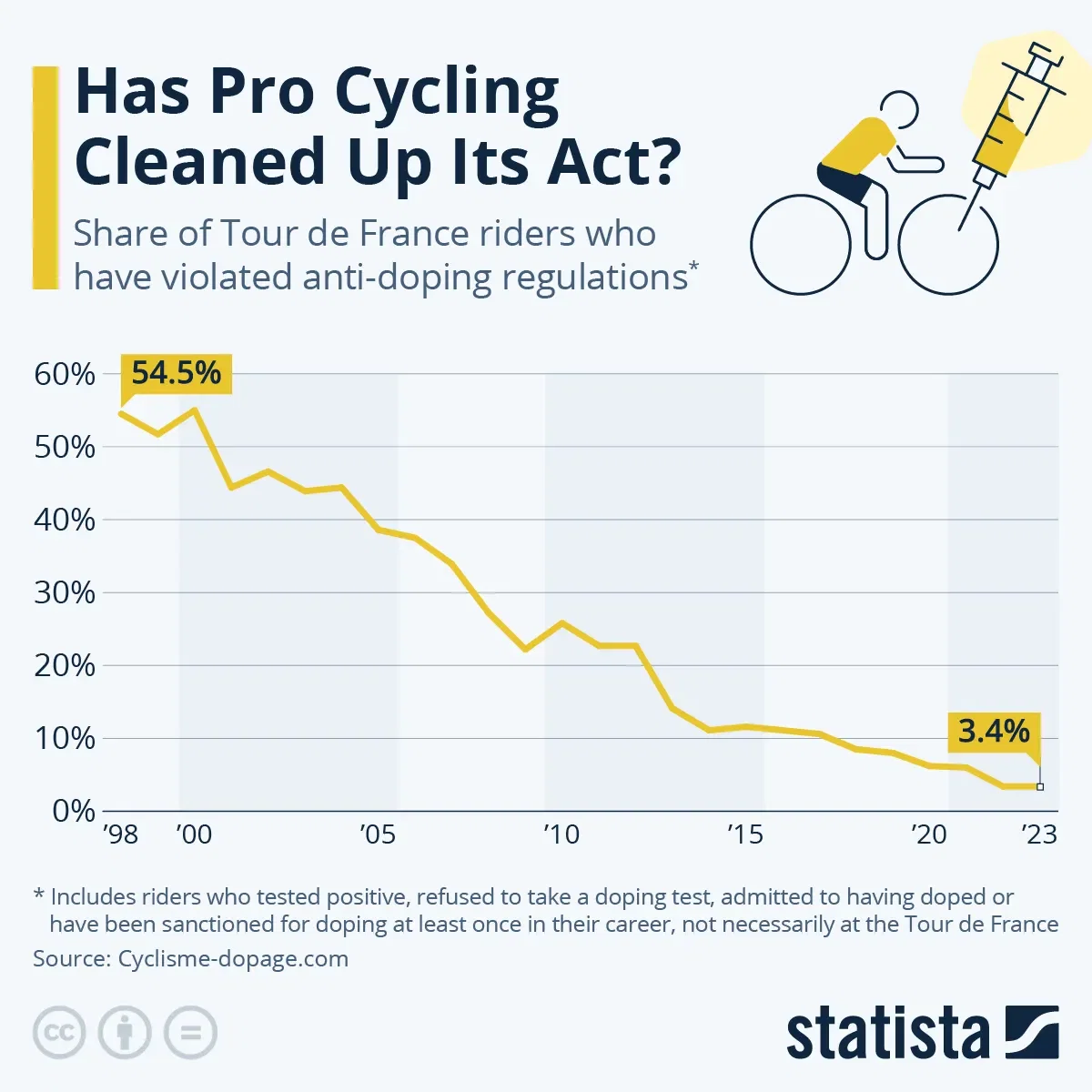Where Data Tells the Story
© Voronoi 2025. All rights reserved.

The 111th edition of the Tour de France, which starts on Saturday, June 29, promises to be an exciting one. For the first time ever, the Tour’s “Grand Depart”, its grand departure, will take place on the Italian peninsula, with riders facing a hilly first stage from Florence to Rimini before continuing to Bologna and Turin on the second and third stage, respectively. Due to the Olympics that start in Paris on July 26, it’s also the first time ever that the La Grande Boucle (“The Big Loop”) won’t finish in the French capital and the first time since 1974 that the final stage won’t end on the iconic cobblestone of Champs-Élysées. Instead cycling fans will be treated to an individual time trial on the final day of this year’s tour, re-inserting sporting jeopardy to a stage that has been more of a parade for the designated winner in recent decades. With four favorites, including defending champion Jonas Vingegaard and two-time winner Tadej Pogačar in the peloton, the race’s organizers will be hoping for a lot of sporting headlines over the coming, hopefully scandal-free, three weeks.
As the following chart shows, the Tour de France and professional cycling as a whole appear to have cleaned up their act, with the share of participants found guilty of anti-doping violations dropping continuously over the past two decades. Given the sport’s history, you don’t have to be a cynic to at least put an asterisk to these numbers, however. Too often have allegedly clean champions later been found guilty of doping as anti-doping agencies caught up with the latest performance enhancing drug of choice. Looking at the data compiled by French website cyclisme-dopage.com is sobering to say the least. It reveals that the Tour de France winner in 44 of the last 56 years has been found guilty of doping at some point in his career, many of which having retroactively been stripped of their Tour wins.